 | Horatio Nelson Robinson - Algebra - 1875 - 430 pages
...m. By involution, m' = a" ; therefore, log. (mr) =rx = r log. m. 6. The logarithm of any root of a number is equal to the logarithm of the number divided by the index of the root. For, let m = a' ; then x — log. m. • By evolution, A/m = a' ; ,, , r,— x log. m therefore, log.... | |
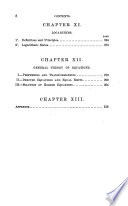 | William Guy Peck - Algebra - 1875 - 348 pages
...definition, ^ = Log tfm .... (8) hence, the following principle: 4°. Tlie logarithm of any root of a number is equal to the logarithm of the number divided by the index of the root. The applications of the above principles require a table of logarithms. A table of logarithms, is a... | |
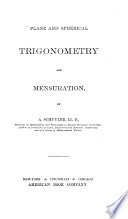 | Aaron Schuyler - Measurement - 1875 - 284 pages
...power of .9. Am. .59047. I EVOLUTION BY LOGARITHMS. f 25. Proposition. The logarithm of any root of a number is equal to the logarithm of the number divided by the index of the root. Let (1) b' = n; then, by def., log n = x. V(l) = (2) br =\/n; then, by def., log Vх n = — • r.... | |
 | Benjamin Greenleaf - Trigonometry - 1876 - 204 pages
...have Mm = (a")m = a"" . Therefore, log (M m) = xm = (log M) X »»12. The logarithm of the ROOT of any number is equal to the logarithm of the number divided by the index of the root. For, let n be any number, and take the equation (Art. 9) M=a*, then, extracting the nth root of both... | |
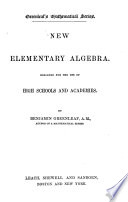 | Benjamin Greenleaf - 1879 - 346 pages
...to the power p, we have <ff = mp, in which xp = loga m f. 361 • The logarithm of the root of any number is equal to the logarithm of the number, divided by the index of the root. For, assume the equation, c?= m, and extracting the rth root of both members, we have, in which, -... | |
 | Benjamin Greenleaf - Algebra - 1879 - 322 pages
...members to the power p, we have ax" = mP, in which xp = logn m p. 361. The logarithm of the root of any number is equal to the logarithm of the number, divided by the index of the root. For, assume the equation, ax = m, and extracting the rth root of both members, we have, a'= $ m, in... | |
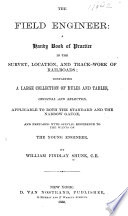 | William Findlay Shunk - Railroad engineering - 1880 - 362 pages
...the logarithm of the number multiplied by the exponent of the power. The logarithm of any root of a number is equal to the logarithm of the number divided by the index of the root. 0. The preceding principles enable us to abridge labor in arithmetical calculations, by using simple... | |
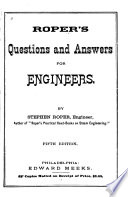 | Stephen Roper - Steam engineering - 1880 - 84 pages
...use. Any power of a given number may be found by logarithms as follows : The logarithm of any power of a given number is equal to the logarithm of the number multiplied by the exponent of the power. EXAMPLE.— To find the fifth power of 9, logarithm 9 = 0-954243X5... | |
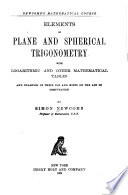 | Simon Newcomb - Trigonometry - 1882 - 372 pages
...logarithm of the number multiplied by the exponent of the power. IV. The logarithm of the root of a number is equal to the logarithm of the number divided by the index of the root. We thus derive the following rules: To find the product of several factors by logarithms. RULE. Add... | |
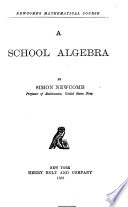 | Simon Newcomb - Algebra - 1882 - 302 pages
...power, 10"* = p". Whence nh — log jo", or n log p = logy. THEOREM X. The logarithm of a root of a number is equal to the logarithm of the number divided by the index of the root. Proof. Let s be the number, and let p be its nth root, so that p = VU and s = p". Hence log s = logp"... | |
| |